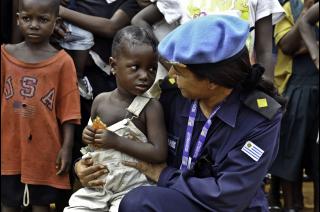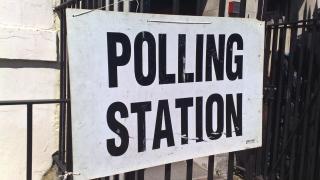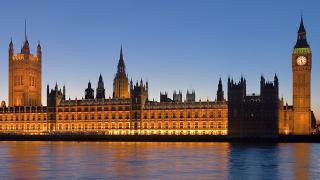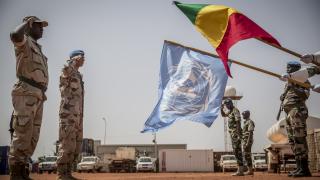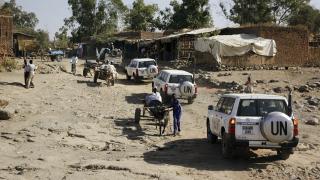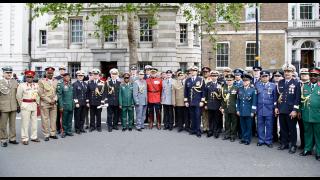The United Kingdom has a commendable track record on peacekeeping. In the mid 1990s, the UK was the largest contributor of UN troops, and while troop numbers have since fallen significantly, the UK continues to contribute high-level advisors and military leaders. Last year, the Government pledged to double its number of peacekeepers with a deployment of 370 troops to Somalia and South Sudan. The UK has for some time been one of the largest financial contributors to peacekeeping.
Future peackeeping will not only require large numbers of troops. Quality, in terms of training, discipline, and willingness to perform, will be just as important as quantity. It is now time to start a richer conversation about troop contributions which emphasises the additional capacity that is granted to UN missions, beyond the raw numbers. This is at the heart of the UK’s ‘Better Peacekeeping’ agenda, and it is an agenda that UNA-UK strongly supports.
However, the UK must not lose sight of the fact that it is the Troop Contributing Countries (TCCs), who place their soldiers in harm’s way, that are making the biggest sacrifice. The UK must therefore be counted among this number if they wish to be treated as equal partners by other TCCs.
- The UK should look at how it can strengthen peacekeeping at the UN with an emphasis on improving the UN’s rapid response capacity
- The UK should put forward a distinct rationale and approach to UN peace operations
- The policy and practice of the new UK deployments in Somalia and South Sudan should showcase ‘people centred’ peacekeeping and the robust implementation of a Protection of Civilians mandate. Once the UK has developed expertise and credibility in this area it should act as an exemplar for other Troop Contributing Countries (TCCs).
- The UK should lead calls for a victim-centred international accountability mechanism to ensure peacekeepers guilty of sexual exploitation and abuse do not go unpunished.

